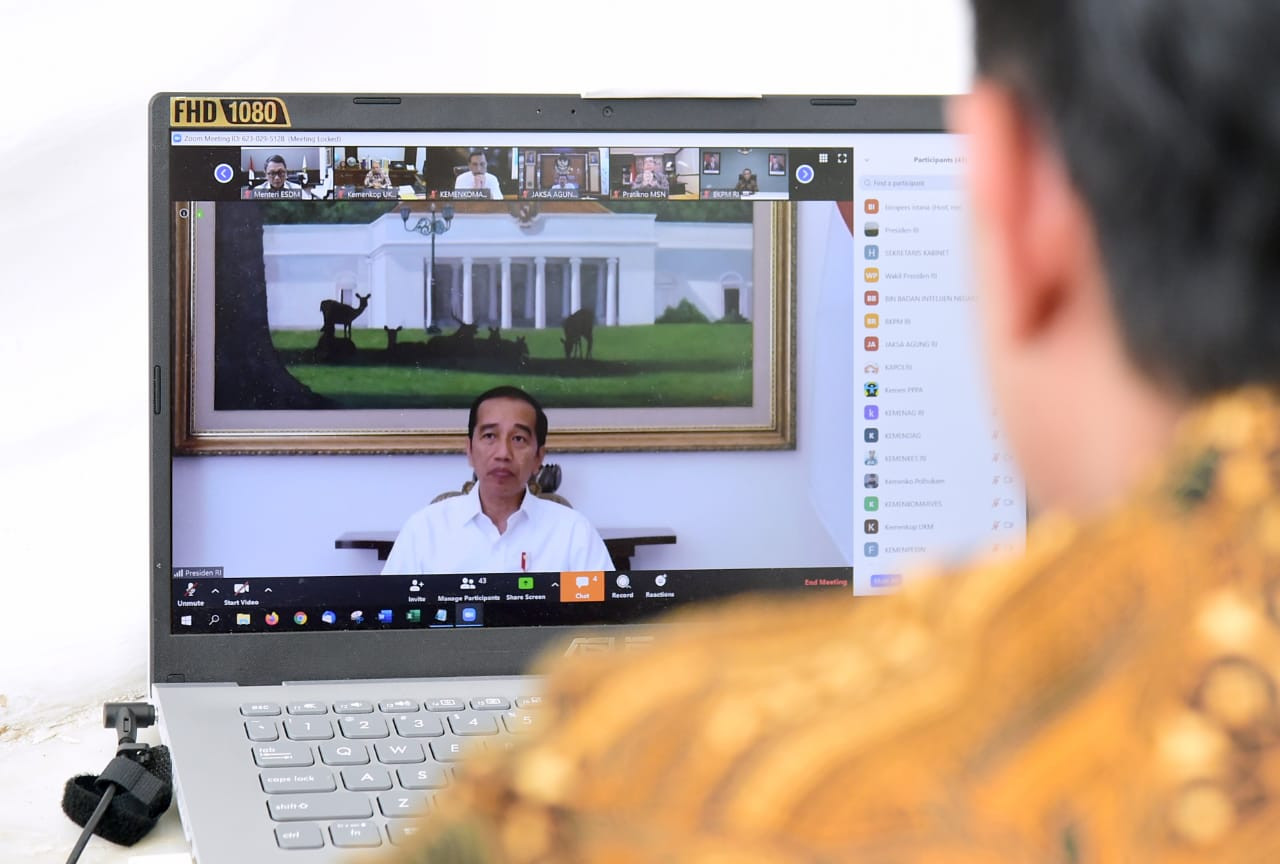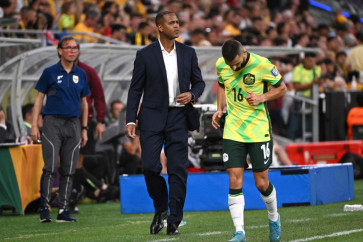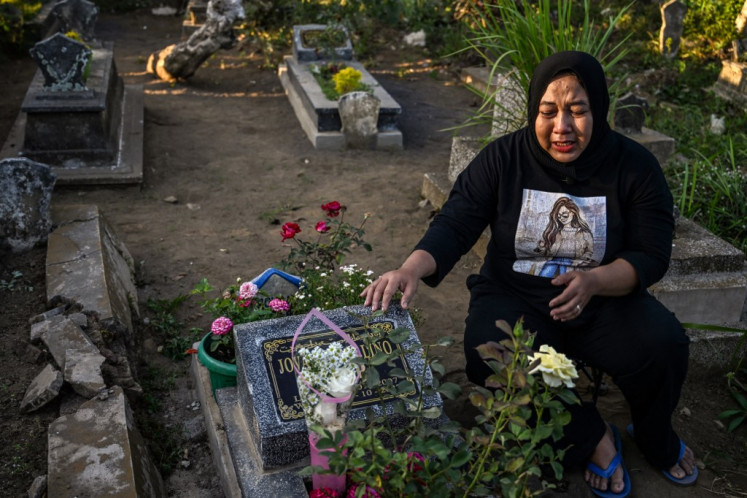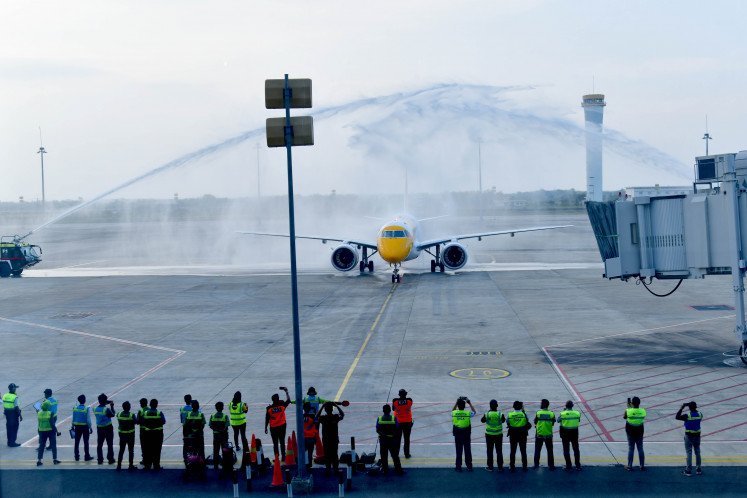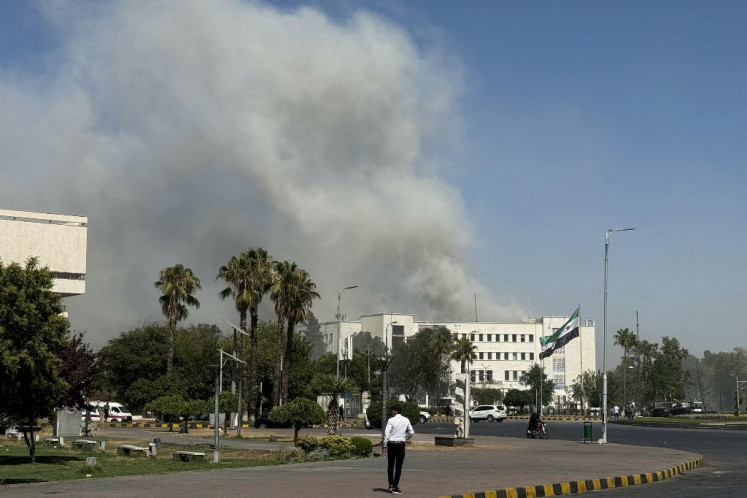Popular Reads
Top Results
Can't find what you're looking for?
View all search resultsPopular Reads
Top Results
Can't find what you're looking for?
View all search resultsPressures on for Jokowi to close cities
Change text size
Gift Premium Articles
to Anyone
P
resident Joko “Jokowi” Widodo has come under increased pressure to impose a partial lockdown on virus-plagued areas, with scientists saying the country is racing against time to curb the spread of COVID-19 before Idul Fitri and that a community quarantine could be the only solution to do exactly that.
The President has said that he will not impose a lockdown even though two of Indonesia’s neighbors—Malaysia and the Philippines— and several European countries have decided to take the drastic measure to slow the transmission of the disease.
As officials scrambled to prevent wider transmission of the novel coronavirus that has spread to at least eight provinces, infecting more than 130 and killed at least five people, Jokowi stressed the government was "not leaning toward issuing a lockdown policy" at this time.
"I have to emphasize that issuing a lockdown policy, either at the national or regional level, is under the authority of the central government. Such a policy cannot be issued by regional administrations," he told a press conference on Monday.
Read also: Govt calls for coordination with regional administrations to curb COVID-19 spread
Jokowi’s remark came as tensions grew between the central government and regional governments over different approaches to handling the pandemic. Several regional leaders, including Jakarta Governor Anies Baswedan, have already taken stricter containment measures, such as restricting transportation services, while the President merely advised people to stay home and practice social distancing.
The conflicting policies between Anies and Jokowi backfired on Monday when commuters defied Jokowi’s call to stay at home, packing bus stops and train stations —due to limited services— and fueling concerns of more contagion in the capital.
With most confirmed cases located in the capital, Anies has argued that a partial lockdown is needed to keep the city safe. “We believe Jakarta should have stopped activities in the capital and prevented people from coming or leaving the city. We cannot decide this ourselves,” he said, adding that he needed to “act fast”.
The Malang administration in East Java briefly imposed a lockdown on Monday before annulling the policy after Jokowi’s apparent reprimand.
As Indonesian authorities squabbled over the policy, Malaysian Prime Minister announced a two-week partial lockdown nationwide after the number of confirmed COVID-19 cases in the country rose to more than 500 in a single day on Monday.
Many of the country's infections have been linked to a global Islamic event held last month and attended by almost 20,000 people, AFP reported. Malaysian authorities said participants at the gathering from Feb. 27 to March 1 had come from Bangladesh, Brunei, the Philippines, Singapore and Thailand. About 700 Indonesians also attended the event, according to The Strait Times.
Philippine President Rodrigo Duterte made the decision to quarantine Manila’s 12 million people to contain the deadly virus last Thursday. During a nationally televised address, Duterte also announced a month of school closures, ban on mass gatherings and prohibition on the entry of foreigners from places where the contagion had spread, AFP reported.
France is the latest European country to enforce a lockdown after the virus infected tens of thousands and killed thousands, most of whom were Italians, on the continent.
Calls for a lockdown come amid concerns that the Indonesian government has failed to act fast to prevent the spread of the virus at an early stage and appears to have no clear strategy or willingness to carry out massive testing on suspected coronavirus-positive patients for a limited quarantine.
As of Monday, Indonesia has only tested 1,230 people , while South Korea has tested more than 200,000 people, allowing it to conduct effective tracing and contain the spread of the virus without having to impose a nationwide lockdown.
A group of scientists from the Indonesian Young Scientist Forum (YSF) has called on the Jokowi administration to impose a partial lockdown on certain areas to prevent sustained community transmission before Idul Fitri, during which millions of Muslims travel to their hometowns to celebrate the religious festivity.
The group argued that Indonesia might have entered the second phase of the epidemic, in which community transmission has occurred, with many people unaware they have been infected and tracing cases becoming harder to do.
“It is now time for a [partial] lockdown as it has become a pandemic,” Fenny Dwivanily, a molecular biologist at the Bandung Institute of Technology and a member of the YSF.
Read also: Scientists call for lockdown to contain COVID-19 ahead of Ramadan, 'mudik
The President has the legal basis to impose a partial lockdown.
The 2018 Health Quarantine Law stipulates that community quarantine or partial lockdown “is imposed on all members of an area if a laboratory test confirms that community transmission has occurred in the said area.”
Chairul Anwar Nidom, the chair of Airlangga University's Avian Influenza Research Center, said a lockdown could be done not based on administrative areas and could even be done on each island.
“This is a huge task, but it could be done,” he said. “On Java, for instance, with the assumption that 1 percent of the population is at risk of being infected then the government needs to have health facilities for around 1 million patients,” he said.
“Java becomes a quarantined single area. All governors and regents will work together and will not issue different policies.”

